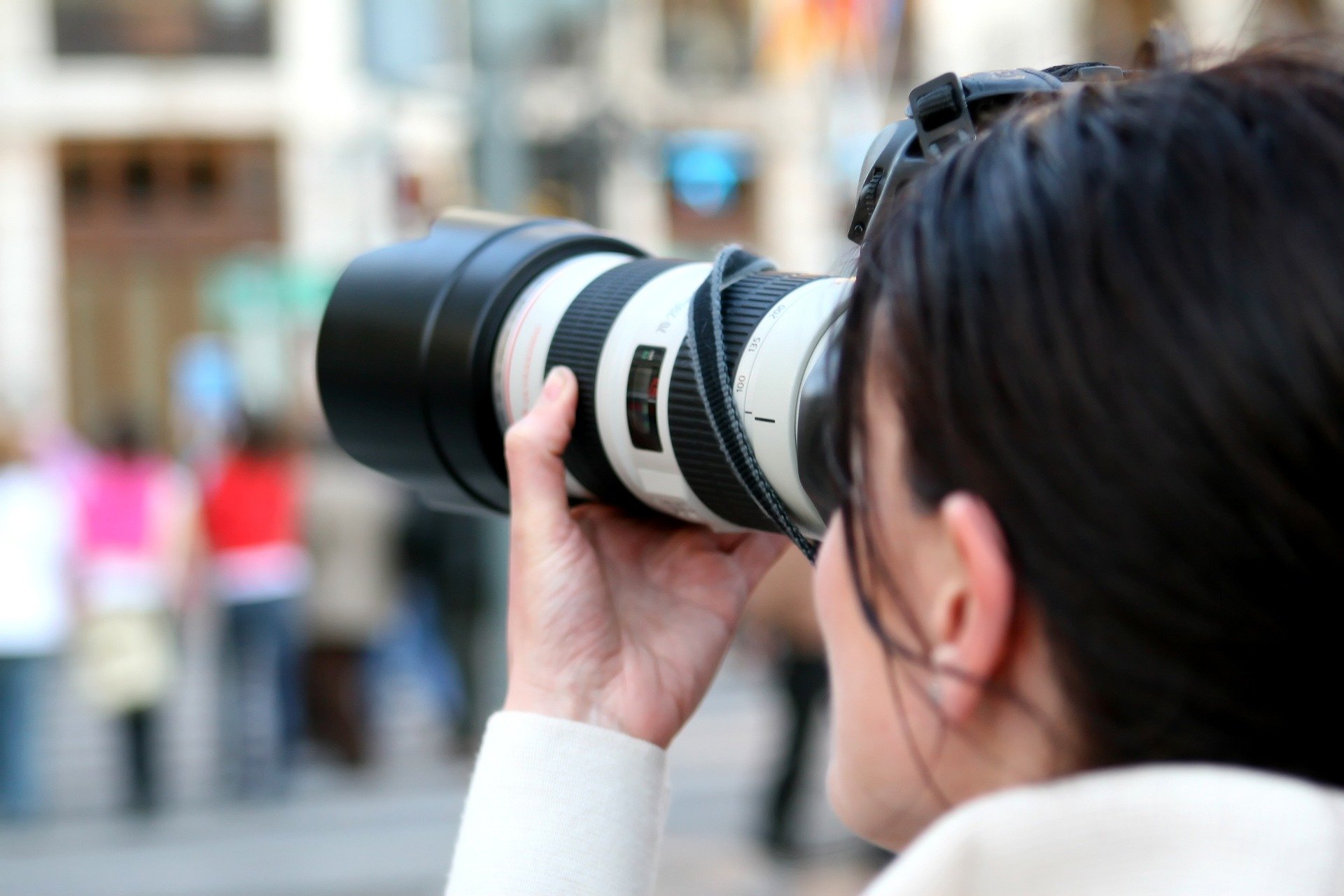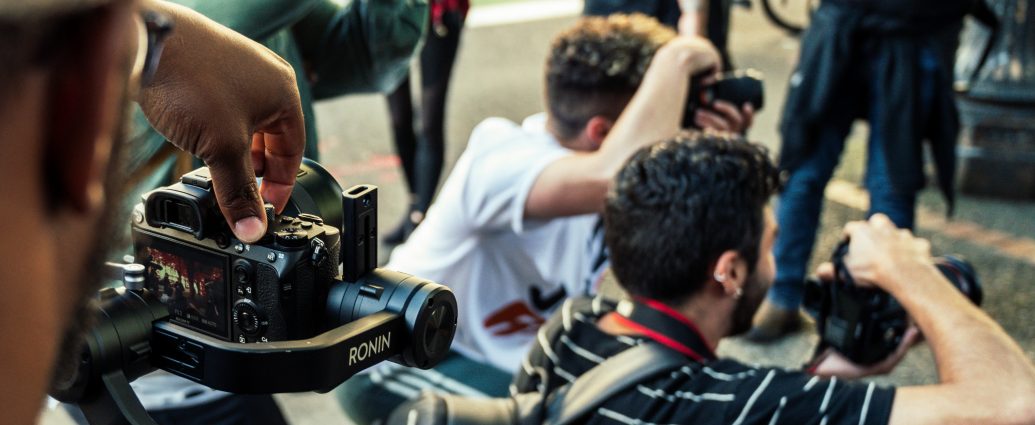It comes as absolutely no surprise that journalists are not on top of everyone’s Christmas card list this year.
All over the Western world, the media have almost become public enemy number one. The coronavirus pandemic we’re all going through, combined with the worldwide Black Lives Matters protest, has presented a multitude of challenges for the industry. This leads us to ask: how can we possibly get it right?
Can we put our viewers and readers first?
Do we need to capture “the mood”?
Accuracy has always been king when it comes to reporting news, and even more so when it comes to reporting crises. Our time spent in lockdown has left many of us thirsty for knowledge, and as journalists, it has been our duty to serve. Our newsrooms have never had larger audiences. Yet, even as we’re reporting from our homes, our information remains vital.
So, what can we report on during lockdown? News, of course; but, do people always want to hear it? More to the point, are we delivering the story in the ‘right way’?
Are we holding power to account?
A message from our patron @AlexCrawfordSky on the importance of journalism, and holding power to account.
"We are the moral compass of everything and everybody, we're the conscience of the world."
Coverage of the coronavirus pandemic has shown us how crucial this is, she says. pic.twitter.com/VvFq56tgVP
— NCTJ (@NCTJ_news) May 27, 2020
Times of crisis validates the need to deliver a constant, reliable flow of news. The coronavirus has induced a worldwide collective trauma. As a result, the lockdown has left a significant number of us feeling hypervigilant, fragile and restricted. Everyone wants an end, yet as we place our ears on the ground and hear the constant stream of stats, many feel that end is not coming any time soon.
Time will tell if their sentiments are valid. Nevertheless, it’s easy to see why locked in audiences harbour a desire for clarity and hope. After all, hope has been the universal operating system throughout the lockdown.
“Don’t hold the government to account, it’s not their fault.”
One viral post came to light across Facebook, Twitter and Instagram. The message was simple: that the media needs to be supportive of the Government in these trying times. That the press needs to step away from criticism and to concentrate on the good news around us.
At first, the post stated: “We do not want or need blame. We do not want constant criticism of our Government who are doing their very best in a very difficult and unprecedented global emergency.”
Of course, this outlook misinterprets our job description. Journalists are not cheerleaders or mouthpieces for the Government. Instead, our job is to hold people of power to account. Politicians, organisations, companies – no one is immune to this, especially in situations where accountability is crucial. Even if the mood suggests someone of power is ‘doing their best’, they are not immune to critique.
What I reported was that Greater Manchester has been told by government the 'Everyone In' hotel-based approach is being wrapped up. Here is the relevant section of the report. I'm just doing my job. pic.twitter.com/8fGTUitc9b
— Jennifer Williams (@JenWilliams_FT) May 15, 2020
A democratic society permits and encourages media to hold organisations and politicians to account. This is important because this helps politicians address problems and concerns in their strategy they may have otherwise missed. Many politicians welcome the opportunity to be held to account because critical reporting promotes political leadership and democracy.
“Can’t you look on the bright side?”
On the other side of the coin, some yearn for positive news. In times like these, who can blame a person for wanting to hear it? The positive news is uplifting, affirming. Yet one of the first rules you learn on the job is, that news is not always what you want to hear. Instead, it focuses on what you, and everyone else around you, needs to hear.
News focuses on facts. Whether they are positive, negative or outright confusing facts is not always for us to decide. Our job is to tell it how it is, using our accounts and experiences as a map. Journalists are expected to report those facts, regardless of whether their readers are in the mood to hear.
Nevertheless, there have been times when the press has received criticism in response to their coverage. One video shows reporters and photographers bundled in front of Dominic Cumming’s home. None appear to adhere to social distancing rules.
Angle, perspective, outlook – while theses are all for readers or viewers to decide, it is not our job to distort news in pursuit of positivity. If there’s something rotten and impactful in the state of Denmark, then journalists have the right to cover it. More importantly, they have a right to hold those responsible to account.
There are times when telling those stories without bias is a challenge. Still, since both written and unwritten constitutions breathe partially through journalism, we have to tell all types of news.
“Can’t your account be more constructive?”
Another critical element of the post stated that in line with the “mood”, citizens of the UK “want and need a constructive contribution to help us out of this crisis.” Analysis reveals why defining the national contribution under a “mood” is unhelpful, as journalists contribute to the national effort through communication. Journalists have been designated key workers since the start of the crisis, even if at times, our questions have felt a bit silly.
If those questions are being asked by a huge number of the populace, then it is our job to find out the answers. This means we’ve already played an active role in directing the public through the crisis. Of course, not every piece of journalism released by the press has pushed politicians to action. Yet, this pressing drive has to succeed in providing the public with the answers to crucial questions.
Readers and viewers might be tired of us asking the same questions. They might not like the questions. Still, without the pressure, chances are we would be suffering from an even more significant lack of PPE in hospitals. Furthermore, without the journalistic drive to hold powers to account, the rights of self-employed people under the furlough scheme have been left undefined.

“Ditch the rhetoric. Stop politicising a virus.”
Finally, the post called on press with a closing statement: “it is time you all changed your negative and political rhetoric for the health of this nation and start supporting our Government.”
Sometimes, negativity is our reality. If journalists can identify improvements, then it is our job to outline them and present the challenge. We cannot shy away from the topics which impact thousands of people, out of fear of making it political. Still, dividing politics away from the news is difficult.
Our role may be to bridge information between audiences and policymakers, but there are times when we may appear slide ever so slightly away from the fence. When it comes to a pandemic like this, you cannot withhold news out of fear you may upset the status quo. Furthermore, provided it adheres to IPSO and OFCOM rules, stating what is happening around benefits society as a whole.
The term “health of the nation” is particularly impressive. Naturally, the Government plays a pivotal role in shaping the health care system. To maintain this, journalists sometimes have to point 0ut the flaws, as well as the things that are running smoothly. This leads to impact; an outcome we have all experienced in recent days.
Thanks to reports released by the media, supermarket chains have now enforced social distancing measures in stores.
Watchdogs are monitoring the independent sales of hygiene essentials to ensure the public are not exploited.
Government officials have announced initiatives, such as the extension of the furlough scheme to protect the rights of the self-employed.
All of these suggest journalists are doing their bit. Journalists hold influential people to account by relaying detailed and accurate information from the bottom-up, as well as the top-down. It’s not about platitudes.
It’s about telling the truth. We do this to the best of our ability.
But what do our readers think?
Of course, all of the above is told through the eyes of a journalist. We’re living through difficult times, and to access the situation correctly, we must lend an ear to our readers. After all, trust is a valuable commodity when it comes to reporting the news.
We turned to our viewers and readers to gauge their thoughts and opinions on the matter. We asked: have journalists missed “the mood”? Or, have we held political figures to account during lockdown?
Listed below are a collection of responses:
Darcey Edkins:
“I think we need to make sure that those in power are being held to account! The fact that the Government is boycotting certain media outlets is disgraceful. It is our responsibility as journalists to challenge expectations and to expose injustice in our industry.
Rosalyn Lord:
“I believe most mainline ‘hacks’ are beholden on their editors and write the story that’s wanted, with the relative bias that holds […] I no longer read many articles as I find the whole thing just noise. I would prefer the facts and to be left to make up my own mind.”
Amy Goddard:
“Some are [holding power to account], and it is good to hold onto that, but I get the feeling that it has very much become a ‘meet the target’ industry and more about numbers rather than actual stories.
“Companies need to get a certain amount of articles out and reach a certain number of people. I feel like the stories are made to fit this need rather than the actual need for real informative journalism.”
James Dunn:
“Change needs to come from both media as well as their audience. If people continue to eat up stories like this, then they’ll keep reporting on them. Not that change on either side is easy or likely in a large enough way that it would change things. There will always be good journalism out there still, however – or so we have to hope.”
Lauren McGaun:
“Seeing some of the comments on my Facebook feed, there’s clearly a large number of people who are discontented with journalism coverage at the moment and this is being overlooked in journalism bubbles. It’s a hard balance to strike though because we also can’t simply just be a mouthpiece for the Government.
“I think the role of journalism is to offer information on both sides of the debate. We have to leave it down to readers to make their own minds up.”
Dave Hale:
“I think it’s very difficult to trust anything in the news, no matter the format.”
Fabian Hunkeler
“The media as the fourth power is key for informed decision making – however, I see a big issue with declining education levels and a tendency to be drawn towards simple logic. This is extensively used by boulevard media (The Sun, Daily Mail, Bild in Germany, Blick in Switzerland) to convey more extreme political positions […] What I think would help with this are simpler, but fact-oriented articles, explaining generally both angles of a topic. “
Stuart Sung Mcflyeon
“I say we need to have more good, heartwarming and uplifting news to inspire people and to balance out the bad and stressful news […] Maybe we should have more news that is neutral when it comes to politics, rather than bias. We should accept others who are different, as I do recall a small number of journalists who are xenophobic. We should also be respectful to celebrities, like with cases involving Prince Harry and Caroline.”
What are your thoughts on the matter? Let us know in the comments.
April Ryan
Featured photo by Brett Sayles, Pexels.
Tweet to @April_L_Ryan

